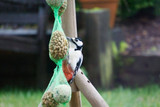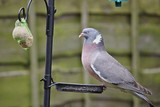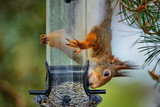How Is Avian Flu Affecting Wild Birds?
This year there has been a mild outbreak of avian flu in a few countries, including the United Kingdom. So far only a few areas in the UK have been affected and only a small number of people have been infected.
Despite the small number of cases, we should always be wary of spreading disease and if you are someone who feeds the birds and interacts with wild birds regularly then you need to be able to spot the signs of avian flu in wild birds and know what to do when you suspect it has reached your area.
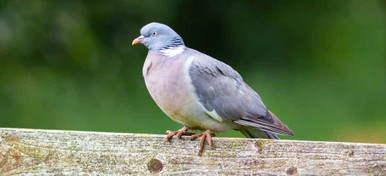
What is Avian Flu?
Avian Flu, sometimes known as bird flu, is a strain of influenza that affects birds and can infect humans if we are not careful.
Avian flu and other sicknesses like this are common in birds and shouldn’t usually be something to be concerned about, however, it is important that we keep an eye out for potential infection risks. Avian flu doesn’t usually infect humans but there are a few strains that can, so always be wary of birds you suspect have avian flu.
How to Spot Avian Flu In Birds?
If a bird is suffering from avian flu, then there will be a few visual signs of this both on the bird or in the area the bird frequents. If you are a bird watcher, you may have noticed a few of these symptoms. These symptoms are visual so you can spot them without getting too close to the bird and risking infection. The symptoms that make us easy to spot if a bird has avian flu are:
- Rapid increase in the number of birds found dead
- Swollen head
- Closed and excessively watery eyes
- Lethargy
- Recumbency and unresponsiveness
- Incoordination and loss of balance
- Head and body tremoring
- Drooping of the wings and/or dragging of legs
- Twisting of the head and neck
- Swelling and blue discolouration of comb and wattles
- Haemorrhages on shanks of the legs and under the skin of the neck
- Loss of appetite or marked decrease in feed consumption
- Sudden increase or decrease in water consumption
- Respiratory distress such as gaping (mouth breathing), nasal snicking (coughing sound), sneezing, gurgling or rattling
- Fever or noticeable increase in body temperature
- Discoloured or loose watery droppings
- Marked reduction in egg production
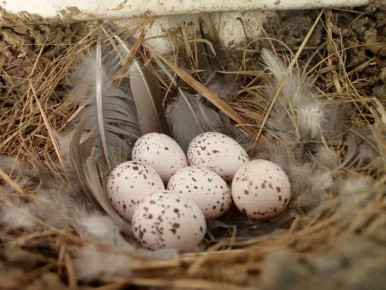
What Should I do If I Think A Bird Has Avian Flu?
Whatever you do, do not touch, or pick up a bird you think is sick. Avian flu is spread by touch so you can become infected and ill if you come into contact with an injured bird. If you notice a lot of dead birds or have one in your garden, you must not move it. You need to go through the proper channels and have the bird removed by a professional.
If you notice a number of sick or dead birds in your area, then you need to report the case so that the government can keep track of how many cases are being spotted across the UK and take action when they need to.
Avian flu can be spread by touch so try not to touch any wild birds. The disease can also be transmitted via birds’ excrement so if you are cleaning a bird table or feeder make sure you do not come into direct contact with it.
How Is Avian Flu Affecting Wild Birds?
Sometimes when cases of avian flu are reported the advice is to avoid birds, wild birds especially, at all costs. Unfortunately, this means that people may decide to stop feeding the birds and stop putting food out for them.
This can be a serious issue for wild birds, especially during winter when food is harder to forage and find, and they rely on the food humans leave out for them.
Whilst you must be wary and make sure to never touch a bird that you think might be infected, it is still safe to leave out food for these birds. Just make sure that the food is left in a place where the bird cannot directly infect you or any members of your family, like on a roof.
Continue to keep feeding the birds, but be on the lookout for any strange and usual behavior from the birds and make sure you report any signs of infection when you see it.

Explore Popular Articles
-
8 Easy Ways to Attract Woodpeckers to Your Garden
8th Apr 2024Woodpeckers are among the most interesting birds known for their drumming sound and bright colours.
-
How to Protect Your Bird Feeders from Pigeons ?
28th Mar 2024You must have noticed damaged feeding ports, hanging mechanisms, perches, lids and bottoms. Who coul
-
5 Foolproof Ways to Rat-Proof Your Bird Feeder
18th Mar 2024Building a bird-friendly environment is a delightful endeavour, but it involves the responsibility o


